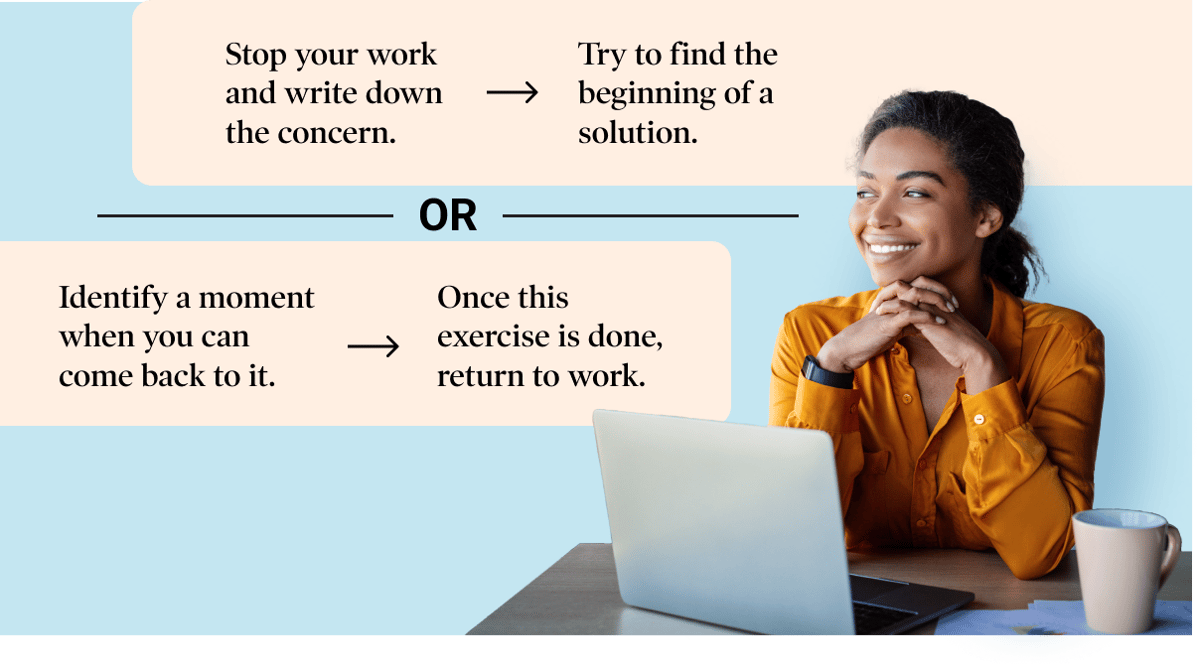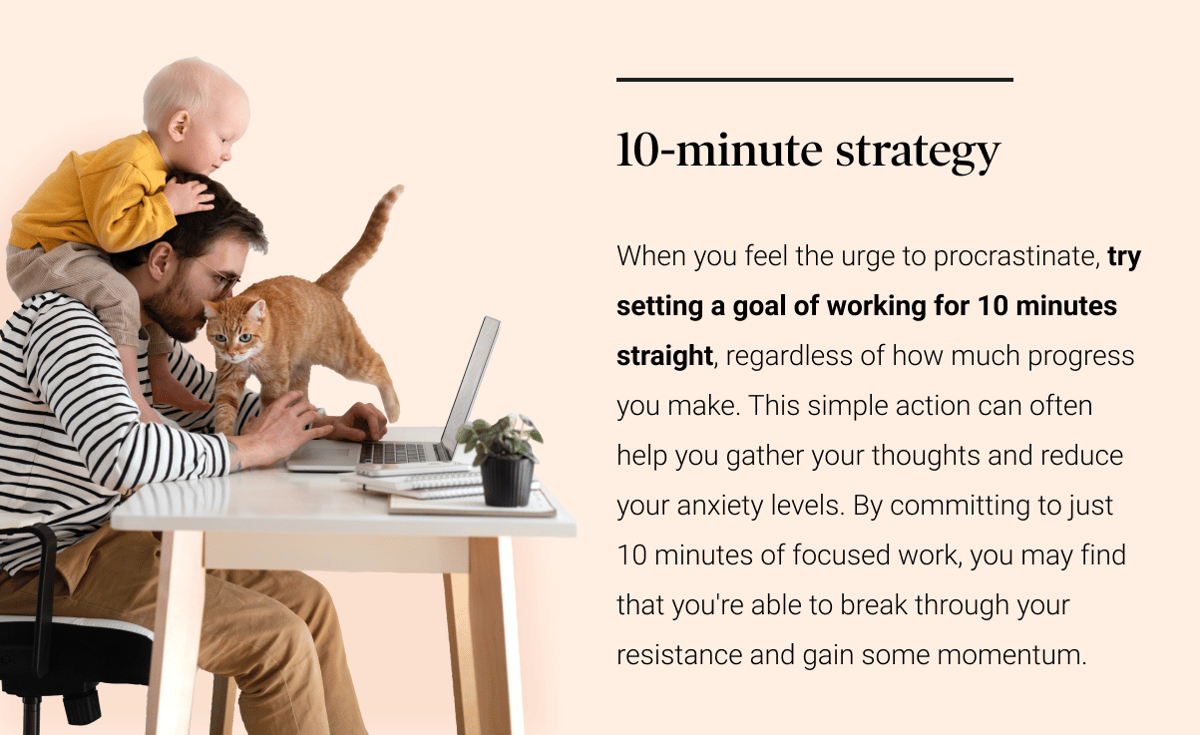Our ability to concentrate at work is influenced by several factors: loud colleagues, bright lights, construction noises, frequent interruptions, or a messy desk. Sounds familiar? These distractions are often heightened for those impacted by anxiety and mental health conditions, neurodevelopmental disorders, and autism spectrum disorders (ASD).
But whether you’re living with these challenges or not, staying focused at work can be tough. To increase productivity and maintain attention, it’s essential to give our brain the conditions it needs to focus. Here are simple ways to overcome common distractors, reduce stress, and benefit from better job satisfaction.
Fighting daydreaming
Daydreaming is natural, and can even be beneficial at times. But when it starts to interfere with your work, it's important to take steps to regain your focus. With a little practice and patience, you can learn to stay present and productive, even in the face of distractions.
-
Get up every time you realize you are daydreaming.
-
Refocus on your task and get back to work as soon as you can.
-
If you absolutely want to finish daydreaming before going back to work, finish it anywhere except in front of your work table.
-
Write a checkmark on a post-it each time you get up, so you can compile your progress.
If you want your daydreaming habit to fade, it’s important to apply this method systematically whenever you become aware of it.
Saying no to intrusive thoughts
When it comes to effective work performance, intrusive thoughts can be a major roadblock. Worries, concerns, and even painful memories can creep up and distract us. These thoughts can persist and be incredibly disruptive, making it nearly impossible to concentrate on work. What's worse, they can cause significant distress and exacerbate existing mental health conditions. If you find yourself struggling with intrusive thoughts, it's important to take a step back and reframe how they're impacting you at work.

Managing your time to save time
Executive functioning skills like planning, organizing, and prioritizing are tough to master, which leads to all sorts of problems. Missed deadlines, increased stress, and poor job performance are just a few examples. On top of that, some may find it hard to stay focused on long-term goals, preferring to focus on the present moment or their favourite hobbies. But fear not, there are ways to manage these challenges and achieve career success.
-
Do an inventory of the work that needs to be done.
-
Write down your current schedule.
-
Plan a to-do list for the week.
-
Establish a priority system according to importance and urgency.
-
Set aside time to manage the unexpected and revise your priorities.
-
Apply deadlines to make sure you don’t let work drag.
-
Schedule 15 minutes to wrap up your day and prepare for the following.
At the end of the week, evaluate and improve your planning. Did you meet your goals? Did you underestimate or overestimate the time needed for certain tasks? As you learn about your own work pace and style, you can optimize hours worked and time management.
Fighting procrastination
Procrastination is a common struggle, but for individuals with ADHD and other learning disabilities, it can have a significant impact on daily life. With difficulty focusing, organizing tasks, and managing time, some might find themselves constantly putting off important assignments or tasks. Procrastination can lead to feelings of guilt, shame, and anxiety, as well as poor work performance. But there are simple ways to avoid procrastination, and ultimately improve quality of life.
-
Identify times during the day when you feel most effective, and do the most difficult tasks during those times.
-
Divide heavy tasks into smaller, achievable goals. Small steps make it easier to start a new activity.
-
Associate a pleasant task with a difficult one, to make the latter more enjoyable.

Quick tips to manage common distractions
External factors
-
Work in a suitable room (peaceful location, secluded, well-lit).
-
Orient your desk to be less exposed to visual stimuli.
-
Reduce noise level by wearing headphones.
-
Turn off notifications.
-
Avoid lying down or being on the couch while working.
-
Keep your desk clear.
-
Have the tools you need available.
-
Reserve your workspace only for work.
-
Share your availabilities with colleagues to avoid being interrupted.
Internal factors
-
Take regular short breaks rather than a very long one.
-
Find out under what conditions you work best (e.g. time of day).
-
Break up your work into small, achievable goals.
-
Set limited goals for intensive work.
-
Reward yourself for the work done.
-
Keep a clock or a watch in sight to keep track of time.
Promote a healthy lifestyle with Dialogue
Concentration can easily be thrown off by factors like fatigue, illness, depression, lack of sleep, unhealthy eating habits, and consumption of substances like cannabis and alcohol.
If you're struggling to focus, it's time to take a closer look at your lifestyle and see if any adjustments need to be made. By cultivating healthy habits such as maintaining good sleep hygiene, eating a balanced diet, and staying physically active, you can give your concentration a much-needed boost. Don't let distractions hold you back from achieving your goals – take charge and make focus a top priority.
Discover how employers can choose Dialogue’s Wellness, EAP, and Mental Health+ programs to better support their organizations.




 Canada (EN)
Canada (EN)
 Global (EN)
Global (EN)








